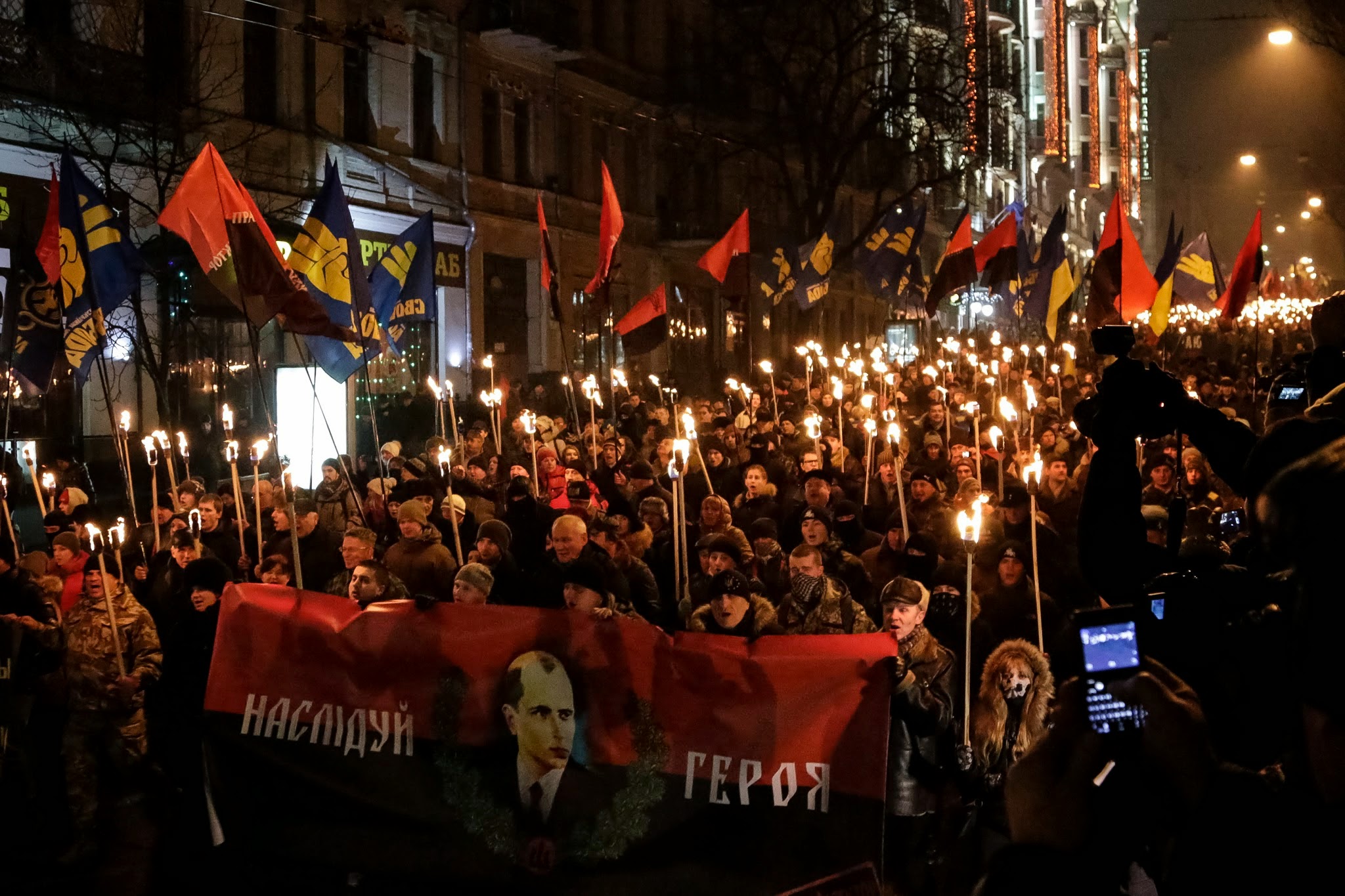Misrepresentations, questionable credentials, malapropisms and half-truths
Feigning concern for the efficacy of Ukraine’s foreign policy is a good approach to reach an audience that otherwise would not bother to read obvious disinformation. There are serious flaws in Andreas Umland’s recent article for New Eastern Europe.
March 14, 2017 -
Askold S. Lozynskyj
-
Articles and Commentary

Misrepresentations
“…the ultra-nationalist, ethnically cleansed and monistic one-part state that the Bandera faction envisaged, at least until the early 1940’s, would have itself amounted to an illiberal and totalitarian dictatorship.”
The OUN was a national liberation movement. At its first congress in 1929 it did not adopt any resolution regarding the form of government of a future state. When the OUN began to address the issue of a form of government in 1940, it issued a manifesto which included specific provisions guaranteeing the rights of individuals to work and pursue happiness, protecting women and children, specifically “for the dignity and freedom of the individual, freedom of expression, freedom of religion, freedom of conscience. In May 1941, the OUN issued short term political directives in which it stated:
“The formation of a long term state government should be based upon an organised manifestation of the will of the entire Ukrainian nation in the form initiated by the OUN of a general election of the head of the Ukrainian state after the liberation of a greater portion of Ukrainian territory and at the beginning of the formation of the state’s existence”
Some documents outlining the OUN’s plan for a cleansing of Ukraine from Jews, among other nationalities, were adopted in spring of 1941, before Germany’s attack on the Soviet Union.
No such documents exist. I challenge Umland to produce these documents aside from Soviet archives. In fact, authentic OUN documents testify to the contrary, calling upon the Ukrainian population to recognise that Jews and other minorities in Ukraine are not the enemy, and not lose sight of the fact that the enemy is Moscow.
Reference to selective authority with questionable credentials
With all due respect, Umland’s roster of academic OUN critics is not a “Who’s who” of international scholars. In fact, some of them like Grzegorz Rossolinski- Liebe is an academic neophyte who in his work intentionally misrepresents, i.e. one of the founding organisations of the OUN was the League of Ukrainian Nationalists, which Rossolinski-Liebe called the “League of Ukrainian Fascists”. Many of the others were simply retained and paid for by various benefactors ranging from those whose mission was to disparage the OUN for political purposes and were responsible for the assassinations in the West of OUN’s leaders or simply those who fabricated demons in order to keep the memory of the Holocaust alive. There is a much more impressive panel of academicians who disagree with the negative assessments of the OUN such as Serhijchuk and Patryliak of the Kyiv University, Kvit of Kyiv Mohyla Academy, Shapoval of the Ukrainian Academy of Arts and Sciences, Hunczak of Rutgers University, Kosyk of the Sorbonne and many others, including Viatrovych.
Use of malapropisms, generalisations and half-truths
Calling Stepan Bandera Polonophobic is like calling George Washington Anglophobic. Bandera spent his entire early life fighting the Polish invaders of Western Ukraine. As the leader of the OUN in Ukraine in the 1930s, he authorised the assassinations of particularly harsh Polish implementers of a genocidal pacification policy against Ukrainians on Ukrainian lands. Two, not one of his brothers, were killed by the Nazis in the notorious Nazi concentration camp at Auschwitz. Those Nazis were Polish capos.
On the subject of Ukraine’s relations with Poland, Germany and Israel, good relations are mutually important. However, that does not mean that Ukraine should rewrite its history books in order to suit some fringe element of Polish, German or Jewish society. Umland’s generalisations are misplaced. Most Poles recognise that in historical Polish-Ukrainian relations Poland was mostly the aggressor. They also recognise that a free and democratic Ukraine is necessary for the continued survival of Poland. In Germany pseudo-intellectuals like Rossolinski-Liebe (who does have a Polish tinge) are fringe. Most Germans are entirely outside politics or pro-Ukrainian. There is an element of German society and government intent on paving the way for sharing the cost of reparations to Jewish Holocaust survivors with other countries by insisting that the Germans could not have perpetrated the Holocaust by themselves. Thus the search for demons continues. This is aided by the Holocaust people whose mission, perhaps noble, is to keep the memory alive. But even that aspect of Jewish society is declining, just as among Ukrainians the numbers of those who blame Jews for the Holodomor is dwindling. Mostly, Jews are favorably inclined towards Ukraine. Ukraine observed Babyn Yar at the highest level. For the first time in a long while, Israel has recently voted with Ukraine on a United Nations’ General Assembly’s resolution condemning the Russian aggression in Ukraine. The Jewish population in Ukraine is growing and its influence in the Ukrainian government is significant, even disproportionate.
My suggestion is that irrespective of his motives which I can neither assess nor prove, Umland should move on. If he wishes to help Ukraine grow as a state, address Ukraine’s corruption and battle the Russians. Those are the real problems the country faces.
Askold S. Lozynskyj is an Attorney at Law born in New York City in 1952. Served as President of the Ukrainian Congress Committee of America 1990-2000, President of the Ukrainian World Congress 1998-2008 and its main representative to the United Nations in New York 2003-2013. Currently President of the Ukrainian Free University Foundation.

































